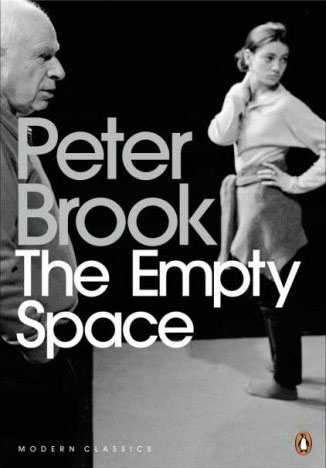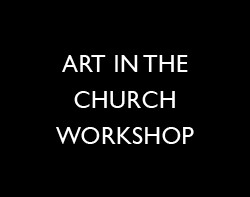Imagine yourself sitting in a theatre waiting for a play to begin. The lights dim, the curtain is pulled, and the first actors emerge on stage and start to deliver their lines. The first thing you notice is that although these actors are saying the right words and the dialogue makes sense, there is no spark, nothing that draws you in and captures your attention. After a number of minutes, your mind begins to wander and you start glancing around to see if others are enjoying themselves. Everyone seems to be watching the play with a bank stare. Soon, you are completely distracted and thinking about where you want to go for a drink after the show is over.
 What this imaginary experience describes in an encounter with deadly theatre. In his classic book on theatre called The Empty Space, Peter Brook delivers a powerful indictment of deadly theatre. He identifies deadly theatre as performances that are dull and boring, providing no transcendental experience or immediate encounter with truth and beauty. In his book, Brook traces out several reasons why deadly theatre happens and why it persists.
What this imaginary experience describes in an encounter with deadly theatre. In his classic book on theatre called The Empty Space, Peter Brook delivers a powerful indictment of deadly theatre. He identifies deadly theatre as performances that are dull and boring, providing no transcendental experience or immediate encounter with truth and beauty. In his book, Brook traces out several reasons why deadly theatre happens and why it persists.
- Deadly theatre happens when all the stage directions are prescribed, leaving no room for improvisation and creativity.
- Deadly theatre is content to be conventional and follow the rules.
- Deadly theatre is imitative rather than innovative.
- Deadly theatre approaches performance from the perspective “that somewhere, someone has found out and defined how the play should be done.”
- Deadly theatre persists because it does not adapt to a changing culture and expectations.
- Deadly theatre persists because people are most concerned about what makes money (consumerism) rather than what is interesting (creativity).
The list could go on, but hopefully you are getting the point. Deadly theatre is boring, uninteresting, repetitive, traditional, conventional, standardized, regulated, and consumeristic.
If you read The Empty Space and substitute Christianity for theatre, the results are stunning. In fact, if you are Christian, you have probably experienced more forms of deadly Christianity than you have deadly theatre. To paraphrase one of the statements above, deadly Christianity approaches the Christian life from the perspective that somewhere, someone has found out and defined how to understand God and live a godly life. Deadly Christianity proposes to have all the answers and a clear script to follow, without any need to adapt to changing circumstances and improvise in complex situations. Deadly Christianity is performing the faith without creativity.
Of course, avoiding deadly Christianity is much harder than defining it. The Holy Spirit plays a critical role here, but so does the active, creative imagination and a community of people committed to opposed to deadliness. I could offer several suggestions for practicing a living Christianity, but I would love to hear from you. What stories encourage you to live with creativity and imagination, avoiding what is merely conventional or consumeristic? In what areas does your own Christian community struggle with a deadly faith devoid of creativity? Are there daily practices you would encourage to foster a lively faith?
If you are reading this post as a non-Christian, allow me to add just one more thing. If you have experienced deadly Christianity, this is not the way it is supposed to be! Christianity is not a straight-jacket constraining creativity, but an exciting way of life in which creativity takes on a whole new meaning.






Thanks for this post! I have never heard of “deadly theatre,” but it make an interesting metaphor for a Christian life that lacks vitality. One thing that struck me, as I read this post, was the interesting relationship suggested between tradition and creativity. Four of your adjectives for deadly theatre were “repetitive, traditional, conventional, standardized.” It seems to me that you could also use this to describe church liturgy. I wonder if there is a way to distinguish between traditionalism and tradition as a source of creativity. (As an interesting aside, some anthropologists have drawn attention to the way that creativity is a social construct, and so, in some cultures, novelty and originality is considered detrimental to ‘creativity.’)
So, in response to your questions, I would say that the Anglican church liturgy, as well as the stories of those Christians who have come before me, encourage me to live with creativity and imagination. That said, you are right that I cannot copy exactly the life of say, Francis of Assisi, and expect my own life to be as vibrant and meaningful as it could be.
Another interesting ‘test case’ for this notion of deadly Christianity might be the Eastern Orthodox church who claim that there rituals have hardly changed in the last 2000 years.
I wholeheartedly agree that there is a difference between tradition and traditionalism. I think the key lies in creative fidelity, appropriating the past with imaginative fittingness to new situations.
A good way to think about this is how people talk about reincorporating past in improvisational theatre. Many people think improv is all about being spontaneous and original, but actually, that is the path to disaster. The director Keith Johnstone suggests that a good improviser has the skill of “being obvious,” because being obvious will keep the story going and will not paralyze the performer in trying to be original.
So, I am glad you raised this point, because included in my plea for creative Christian living is not a rejection of tradition but a creative reception of the past for the sake of faithful yet fitting performance. In doing so, however, we cannot pinpoint a definitive performance except for that of Jesus, because the Spirit is still working and transforming the church.
Glad to see that both of the responses so far have called out the use of the word “tradition” in the conversation. Eliot’s essay “Tradition and the Individual Talent” does a great riff on the underlying issues — and in passing shows up the misappropriation of the term to denote deadliness. The poet speaks of tradition as “what is not merely the present, but the present moment of the past…not of what is dead, but of what is already living” and as something both concerned with continuity and disruption — but not the disruption of mere novelty. The genuinely new, the genuinely living thing must acknowledge its debt to the past, to tradition — but cannot stagnate in preservation mode, but moves forward carrying the canon along with it — even as it re-contextualizes that same canon by adding something authentically fresh, authentically new.
Peter Brook’s work is a great example of what is “already living”.
Thanks for your comment, Bruce, and for bringing Eliot to bear on this discussion. It is mere repetition that turns into traditionalism, but you are right in echoing Eliot that a genuinely living work will be rooted to the past and appropriate the past in creative and imaginative ways. Re-contextualizing the canon is a good way of thinking about this, as well as seeking a beautiful “fit” between canon and context.
Thanks again for your thoughts.
This discussion calls to mind the Valley of Dry Bones in Ezekiel. “Deadly Christianity” or deadly anything seems to happen when life is approached with a preconceived and self satisfied notion of how life should be lived. Life can then become stagnate and wither and slowly lose it’s vitality – and is in danger of becoming like an old bag of dry bones. God creates and God re-creates. When we seek to know Him with our whole heart through reading His Word and through communion with Him we will experience His blessing in our lives, especially in the gift of the Holy Spirit. When the Holy Spirit is present, God’s people are enabled to live. When God’s people “listen” and “hear” and “know” the voice of the Spirit then it is possible to see and experience the only basis on which hope can be held out to dead actors in the theatre of life.
You are absolutely right that living Christianity is pursued through the Word and Spirit and the nourishment, knowledge, and freedom that comes from both. We look forward to exploring more the role of the Spirit in the life of faith and creativity more on this blog!
this was really helpful to my Christian and academic life… weldone